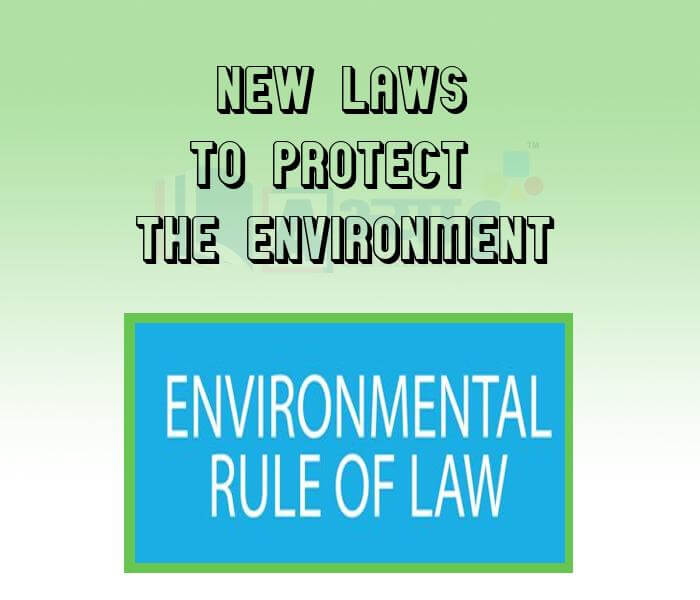New Laws to Protect the Environment

New Laws to Protect the Environment
New laws to protect the environment:
In 1984, there were very few laws protecting the environment in India, and then there was hardly any enforcement of these laws. The environment was treated as a ‘free’ entity and any industry could pollute the air and water without any restrictions. Whether it was our rivers, air, groundwater- the environment was being polluted and the health of people disregarded.
Thus, not only was UC a beneficiary of lower safety standards, if didn’t have to spend any money to clean up the pollution. In the U.S.A, this is a necessary part of the production process.
The Bhopal disaster brought the issue of environment to the forefront. Several thousand of persons who were not associated with the factory in any way were greatly affected because of the poisonous gases leaked from the plant. This made people realize that the existing laws, though weak, only covered the individual worker and not persons who might be injured due to industrial accidents.
In response, to this pressure from environment activists and others, in the year following the Bhopal gas tragedy, the Indian government introduced new laws on the environment. Henceforth, the polluter was to be held accountable for the damage done to environment. The environment is something that people over generations will share, and it could not be destroyed merely for industrial development.
Laws are necessary in many situations, whether this be the market, office or factory so as to protect people from unfair practices. Private companies, contractors, business persons, in order to make higher profits, resort to unfair practices such as paying workers low wages, employing children for work, ignoring the condition of work, ignoring the damage to the environment ( and hence to the people in the neighborhoods) etc.
A major role of government, therefore, is to control the activities of companies by making, enforcing and upholding laws so as to prevent unfair practices and ensure social justice. This means that the government has to make ‘appropriate laws’ and also has to enforce the laws. Laws that are weak and poorly enforced can cause serious harm, as the Bhopal gas tragedy showed.
Students / Parents Reviews [10]
My experience with Abhyas academy is very good. I did not think that my every subject coming here will be so strong. The main thing is that the online tests had made me learn here more things.

Hiya Gupta
8thI have spent a wonderful time in Abhyas academy. It has made my reasoning more apt, English more stronger and Maths an interesting subject for me. It has given me a habbit of self studying

Yatharthi Sharma
10thAbhyas Methodology is very good. It is based on according to student and each child manages accordingly to its properly. Methodology has improved the abilities of students to shine them in future.

Manish Kumar
10thAbhyas is a complete education Institute. Here extreme care is taken by teacher with the help of regular exam. Extra classes also conducted by the institute, if the student is weak.

Om Umang
10thIt was a good experience with Abhyas Academy. I even faced problems in starting but slowly and steadily overcomed. Especially reasoning classes helped me a lot.

Cheshta
10thAbout Abhyas metholodology the teachers are very nice and hardworking toward students.The Centre Head Mrs Anu Sethi is also a brilliant teacher.Abhyas has taught me how to overcome problems and has always taken my doubts and suppoeted me.

Shreya Shrivastava
8thIt has a great methodology. Students here can get analysis to their test quickly.We can learn easily through PPTs and the testing methods are good. We know that where we have to practice

Barkha Arora
10thBeing a parent, I saw my daughter improvement in her studies by seeing a good result in all day to day compititive exam TMO, NSO, IEO etc and as well as studies. I have got a fruitful result from my daughter.

Prisha Gupta
8thA marvelous experience with Abhyas. I am glad to share that my ward has achieved more than enough at the Ambala ABHYAS centre. Years have passed on and more and more he has gained. May the centre flourish and develop day by day by the grace of God.

Archit Segal
7thMy experience was very good with Abhyas academy. I am studying here from 6th class and I am satisfied by its results in my life. I improved a lot here ahead of school syllabus.








